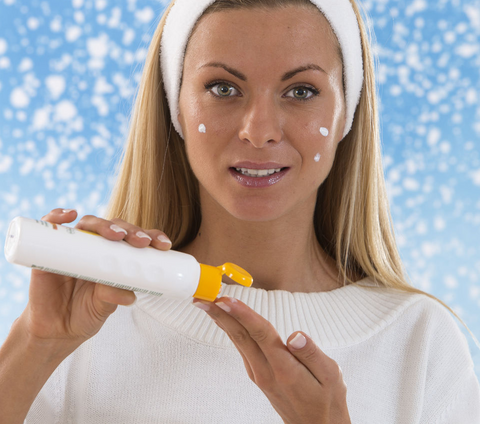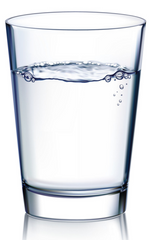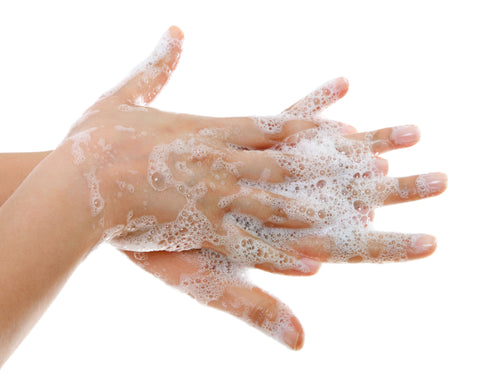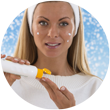
Cozying up to a fire, building snow people, and spending time on holiday travel are all part of wintertime. Unfortunately, dry, cracked, or flaking skin can add to your activity slate. You may know what's causing your dry skin: the dry air coming from your furnace, the frigid wind blowing outside, and the hours of shoveling snow. Sometimes, no matter how much lotion you apply, your skin still suffers through the season and doesn't soften until spring.
Leave those days behind you. The solutions for your rough hands, chapped lips, and dry skin are here. Knowing which ultra-moisturizing products are which, and how and when to use them will leave you equipped to fight winter's harsh effects and skate through the snowy, freezing season with soft, healthy skin. Discover eight ways to combat winter's effects on your skin.
Use the Right Moisturizer
Staying warm in winter can have unfortunate consequences on your skin. Many furnaces and heaters pump dry air into the house, air which can dry out your skin. Taking hot showers or hot baths will also make your skin dry out faster in the winter than in other seasons.
Moisturizing regularly with a powerful moisturizer is essential during the winter. The lightweight moisturizer that works for you in summer may not be enough to combat winter dryness. Nix the scented body lotions and find a natural moisturizer with shea butter, cocoa butter, or Vitamin E.
You'll probably need a different moisturizer for your face, since the skin on your face reacts differently than the rest of your skin. However, rethinking your moisturizer doesn't mean you have to use something that disagrees with your skin or makes you break out. For oilier skin types, opt for products that contain hydration boosting ingredients like hylaronic acid or plant based glycerine, both of which attract water into the deeper layers of the epidermis. These ingredients will help boost skin hydration without feeling heavy on the skin. For drier skin types, incorporating pure oils like Rosehip or Argan is an excellent way to boost moisture levels while getting tremendous anti-aging benefits.
Keep Applying Sunscreen

Protecting your skin from the sun should happen throughout the year, especially in winter. Did you know that the earth is actually closer to the sun in winter, but the tilt on its axis, not proximity to the sun, is responsible for the seasons? UVA rays still are strong during winter, and UVA rays are the rays that do deep damage to your skin. While you're not seeing a tan, an effect caused by the UVB rays that have an easier time reaching the earth in summer, don't be fooled into thinking you aren't getting the sun's effects on your skin.
Skiers, take note: Snow and ice reflect a significant part of the sun's rays back into your face. While you probably won't be sunburned in the winter, you shouldn't stop protecting your skin with sunscreen. As you would for summer activities, apply a broad-spectrum sunscreen liberally to your face each morning. The correct amount of sunscreen is a shot-glass measurement for your face, neck, and hands.
Double the benefits of wearing wintertime sunscreen by getting a natural brand that also moisturizes. Look for ingredients such as cocoa butter and vitamin E, both materials which are effective moisturizers.
Keep Your Skin and Body Hydrated

Staying hydrated is an essential part of your skin care routine. Have you ever noticed that when your skin is dry, it sucks up lotion, and a few minutes later, you feel dry again? You don't want to let your skin get to that point. Whether or not you actually see an improvement in your overall appearance when you drink more water, your skin cells will appreciate the extra hydration. If you leave moisturizing totally up to your topical moisturizer, your skin may not receive all the elements it needs. Help that topical moisturizer do all it can do by hydrating inside your body.
Skin hydration doesn't mean only drinking water. You can keep your skin hydrated in other ways. Immediately upon getting out of the shower and towelling off, apply a moisturizer over your body. Your pores are open after being in the warmth and steam, and this period is the best time to moisturize because your skin is at its most absorbent. You also curb the drying effects of taking a hot shower or bath by moisturizing straight out of the shower.
Humidifiers are another great way to take care of your skin's hydration in winter. Your skin actually has a harder time holding moisture when the air is cold and dry. You may feel like you're moisturizing every five minutes and still looking flaky. A humidifier helps slow water evaporation inside your skin cells. Adding extra moisture to the air in winter is another way to help your moisturizers work to their fullest potential because they won't evaporate as quickly either.
Always Wear Night Cream
Give your skin an extra moisturizing boost at night by applying night cream. Night cream can be very hydrating during the winter months. Since having slightly greasy skin is not a significant problem while you're asleep, night cream often packs more of a moisturizing punch than the moisturizer you wear during the day.
Along with moisturizing benefits, night cream also provides other significant anti-aging benefits. The right night cream is formulated to reduce inflammation and redness, both conditions which can get worse in winter as your skin dries out. Night cream will also help keep your pores clean and your complexion blemish-free. As with any cream, make sure you're using the product as directed. You'll get the full benefits if you follow the directions on the container label. Applying too much may overload your skin, and you won't see extra improvements that way.
Use Natural Oils to Fight Chapped Lips
Chapped lips are one of the most painful consequences of winter. The lip balm that keeps your lips happy during the rest of the year suddenly doesn't soothe cracked, flaky lips and you’ll find yourself reapplying the product to no avail. Part of the reason might be the petroleum content in your lip balm. Petroleum keeps the lip balm extra smooth but this ingredient is not very good at helping your lips retain moisture. To keep your lips supple and soft in winter, you need a more effective approach to lip care.
Argan oil and coconut oil are both safe to use on your lips in place of lip balm and both oils offer intense moisturizing solutions that will help during winter. Argan oil comes from the Moroccan argan tree and the product contains linoleic acid, which helps the skin stay lubricated. Coconut oil provides similar results, packing so much moisture that your chapped lips will get a serious boost. If the consistency of either oil is unfamiliar or uncomfortable as lip balm, try them as overnight treatments first.
Pay Special Attention to Your Hands

Hands seem to get the raw end of the deal during winter. You probably wash them more often because you want to rid your hands of germs so that you minimize your risk of illnesses. You may forget your gloves a few times, and even if you don't, a huge snowstorm might drench you, causing your gloves or mittens to get soaked. These factors add up to rough, cracked, and bleeding hands during the winter.
Shea butter, cocoa butter, or coconut oil will rejuvenate the skin of your hands if you use these products often enough. If you don't like the greasy feeling the oils and butters leave during the day, apply the product only to the backs of your hands while you're awake and apply the product over all surfaces while you sleep. Wear a pair of soft gloves at night to keep the moisturizer on your skin and off your bed sheets.
Apply butters and oils after every hand wash and application of hand sanitizer, since the sanitizing agent can be rough on your skin. What you want to prevent is cracked, bleeding skin, because those conditions take longer to heal in winter. If you keep your hands moist from the start and begin a solid moisturizing routine at the first sign of dryness, your hands will come through winter soft and smooth.
If your cuticles are especially painful and you have many hangnails, try argan oil on your nail beds. Massage a small drop into each cuticle, focusing on the areas with the worst hangnails. Then gently trim off your hangnails. Keeping your cuticles and the skin around your fingernails moisturized will help prevent more hangnails from forming.
Nix Makeup Remover Containing Alcohol
Those alcohol-infused makeup removal pads are handy, given how quickly these pads remove a long day's residue off your face. Although completely removing all your makeup at the end of the day is essential, using alcohol to take off your makeup isn't a good idea and using alcohol in the winter is an especially unwise move.
Alcohol dries out your skin quickly. You can probably feel your skin stinging as you use an alcohol-based makeup remover and afterward your skin may feel tight. That tightness means your skin is losing too much moisture during the alcohol applications.
Instead of going with makeup removal wipes, a number of gentle treatments exist for getting your makeup off your face thoroughly. As a bonus, these treatments will hydrate your skin instead of drying it out. A natural cleanser with essential oils will effectively remove the makeup from your skin and leave your face hydrated when you've rinsed off the product. You can also go a step further and follow the coconut oil trend. Coconut oil takes off your makeup without suds and the oil helps maintain your skin’s natural barrier, keeping essential hydration locked inside.
Brighten Your Eyes With Eye Cream
As you may know, the skin near your eyes is especially thin and sensitive. This skin is prone to aging and dries out faster than the rest of your face. This means these areas need special attention year-round, but especially in winter when keeping moisture locked in your skin is harder.
One of the ingredients you want in an eye cream is hyaluronic acid. This substance is already found in your eyes and in your joints and the acid acts as a natural lubricant. A major benefit of hyaluronic acid is the way the material binds to water, and in turn, helps deliver and bind that water to certain parts of the body. Your skin has a high concentration of hyaluronic acid already, so give your skin a boost with a great eye cream.
Keep in mind that "eye cream" is a generic term for the topical treatments specifically designed for the skin around your eyes. Many of the most effective products are gels or serums. The moisturizing ingredients and lack of harmful substances like parabens and sulfates are most important when choosing an eye cream. In addition to their moisture packing benefits, eye creams help target other common concerns such as dark circles, puffiness, and wrinkles. It is important to use a product specifically formulated for the eye area. Using your regular serums and moisturizers on the delicate skin around the eye can cause irritation. Also always use your ring finger and a gentle tapping motion to apply eye creams and avoid getting too close to the lash line. The ring finger is the weakest finger and it will prevent excess tugging of the skin.
'Tis not the season for damaged, dry skin. Invest in the time and the proper products and you might see a marked improvement in your skin this winter, with no more itching, tightness, or flaking. You may not be able to fight off the chill with a good moisturizer, but at least your skin will be soft and comfortable.




